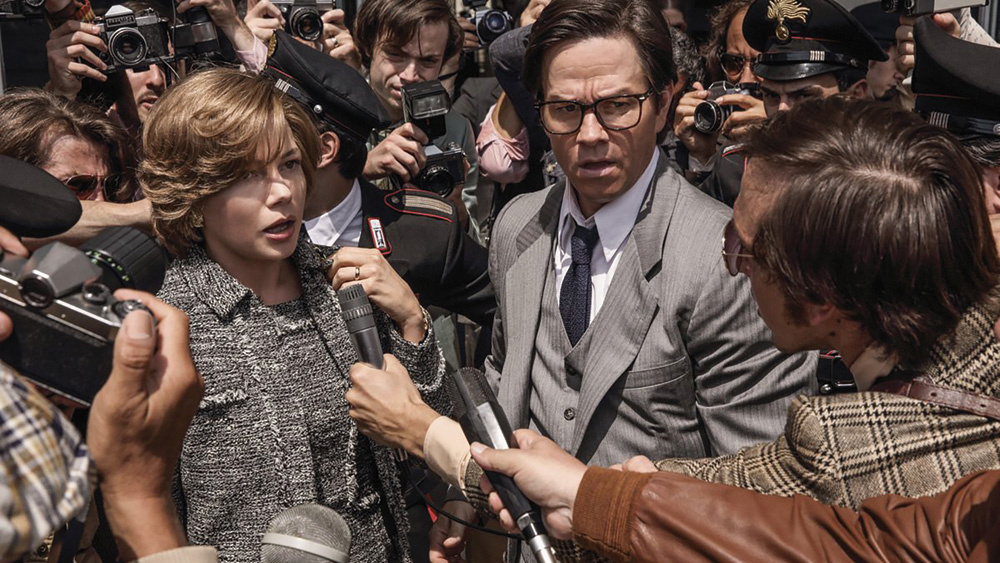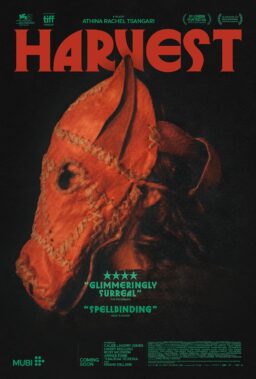A few weeks ago I ran into a video review at the Mexican site Letras Libres of Ridley Scott’s “Alien Covenant”. It implied that one of my favorite movies from the last year was mostly generic and also made a point that its director hasn’t done any relevant work in the last 35 years. This last assertion would point us towards “Blade Runner” (1982) and “Alien” (1979), the latter a landmark film and a sure bona fide classic, but also a good example of how difficult it is to make a clear case on Ridley’s films.
I would have to agree “Blade Runner” (1982) is probably the last of Scott’s works that can be described as truly groundbreaking, but then the following question comes to mind: Have the director’s films really suffered from a progressive lack of ambition through the years? The best way I can think of answering these questions is by reviewing “All the Money in the World,” Scott’s most recent film and the subject of this piece.
At first glance, a kidnapping movie wouldn’t seem like a good case for originality. Right of the bat, I can think of “Man on Fire” (2005), by Ridley’s brother Tony about a man who develops a father/daughter relationship with the girl that is to be abducted; Ron Howard’s rather exciting “Ransom” (1996) about a father’s unorthodox attempts to free his son from his captors, and even the first two of the Liam Neeson films in the “Taken” franchise. But even though “All the Money in the World” may seem at first like just another abduction movie, I believe it is rather a prime example of Roger’s “it is not what the movie is about but how it is about it”.
“All the Money in the World” is the real-life story of the abduction surrounding oil billionaire JP Getty’s grandson in Rome by a group of rather incompetent but sinister criminals. As the film’s voiceover explains about the teen’s own grandfather (played by Christopher Plummer) not only is he “the richest man in the world of his time but also the richest man in history” (up to that point anyway). The problem is that the young Getty’s mother Gail (Michelle Williams) and his grandfather’s “fixer” Fletcher Chase (Mark Walhberg) seem to be the only characters willing to do whatever it takes to free him. Having divorced the kid’s drug-crazed father, Gail is no longer part of the family, and she has no means to accomplish the feat on her own. What’s worse, Getty’s bizarre response to the kidnapping of his favorite grandchild ends up taking it into more capable and much more sinister hands.
“All the Money in the World” is heads above these other kidnapping examples. What the movie is best at conveying is the wild complications that ensue when the teen turns out to be worth unpredictable amounts to the strange characters involved in the ordeal. For the grandparent with all the money in the world but more concerned with the relief that saving every penny brings him (“we are like you but we are not really like you”). For the cruel purchaser of the kidnapping (played perversely by a subdued Marco Leonardi, the once sweet teen from “Cinema Paradiso”) for whom Getty III is just a commodity. For the mother to whom being married to the family of the world’s richest man never meant all that much until now, when it is precisely what has placed her in this predicament, and for the modest kidnapper whose strong idea of belonging to a family is more meaningful than any amount of money and of more relevance than to those supposedly close to the victim, something that he just can’t make any sense of. At its core, “All the Money in the World” is not so much about the abduction itself or even about JP Getty’s astounding stinginess but more about the impossible situations that arise. As Getty says, “Everything has a price, the great struggle in life is coming to terms”
Donald Sutherland is currently playing the same character for the TV show “Trust,” and he has stated that the man’s stinginess, as depicted in Scott’s film is far from true. Without claiming to know which is right, I have my doubts that this and other occurrences portrayed in our movie are accurate such as Fletcher threatening Getty as to get him to pay the money for his grandson’s ransom. I also have serious doubts that the older Getty died all alone on the same night that his grandson was released, only comforted by the presence of the $1.5 million work of art he purchased during the time period when the teen was held hostage and getting his ear cut off thanks to his grandfather’s cheapness. Whatever the case, there is little doubt that these events, real or not, made for a better movie. The lack of any such complex situations make the overrated “Man on Fire” and the “Taken” movies feel like mindless action entertainment in comparison. Ridley’s movie is much more in par with Ron Howard’s fairly exciting “Ransom” about a father who turns his son’s snatching on the kidnappers by putting a bounty on their head and refusing to pay up, a great cinematic twist but also one that I found far from believable, proof being that nobody would ever consider stealing the idea for real life purposes. Come to think of it, when it comes to twists and turns, the closest entry that our film resembles may very well be “Ruthless People” (1986), with Getty not showing much more incentive to pay his grandson’s ransom than Danny DeVito did with Bette Midler’s.
As everyone knows the Getty part was recast once Kevin Spacey’s private life became public and the scenes that involved him were re-shot with Christopher Plummer. The only cases where I found the changes noticeable were when a young-looking Christopher Plummer gets off a train in the desert in the 1940s as well as that where his young grandson helps him answer the mail with financial pleas for help. I’m under the impression that a digitally rejuvenated Plummer was over imposed on previously shot backgrounds for both. This was obviously done in a hurry but I doubt that anyone unaware of them would ever really notice them. We’ll probably never get to see a version of Spacey in the role (the ultimate DVD special edition for sure) but the main reason why the changes are mostly seamless is because Plummer feels so right in the role. It’s impossible to imagine Spacey or anyone else in it. Plummer doesn’t end up with as much screen time compared to Wahlberg or Michelle Williams but he’s clearly the heart of the movie and his presence is felt throughout. This basically means that the “All the Money in the World” received a heart transplant of sorts a few weeks from release and still became all the better for it.
So, have Ridley’s Scott latter films become less ambitious with time? True, “Gladiator” is his only work to win the Best Picture Academy Award, but it could be argued that it was basically a modernized 1950s-era bible release in the spirit of “Ben Hur” and “Quo Vadis” where modern technology filled the void of the thousands of extras sound in the older examples. “American Gangster” was another worthy feature but yet another entry into an already populated genre as well. “The Martian” was also rather good but it would be hard to deny at its core it was a very well made amalgam of “Apollo 13”, “Gravity” and specially “Cast Away”.
So the answer would depend, I suppose, on what matters most to the viewer: groundbreaking moviemaking or better storytelling and there is little doubt that in recent years Scott has mostly excelled on the latter. “Blade Runner” was clearly a visual breakthrough, but, when it came to plot, it was really nothing special. This doesn’t mean that that Scott’s recent films haven’t all been as great looking as always but his usual grayish/bluish tones have perhaps started to feel more routine (think of the great-looking scene in the old Roman ruins where Getty tells his grandson about his alleged past lives). Still, their plots have been more complex and their stories and characters more involving.
Somehow I’ve come to feel bad for Ridley Scott. At 80, he’s made two of my favorite films of the last year and not only did they both do poorly at the box office but it turns out they are now seen as routine. All of this, ironically enough, in the same year that a “Splash” remake ended up winning the Academy Award for Best Picture.












